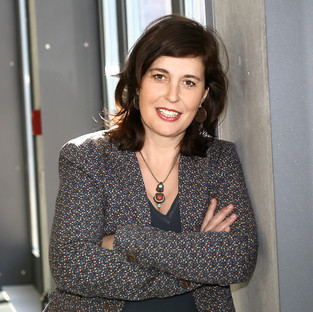Kultur und Ethik der Biomedizin im Deutsch-Israelischen Vergleich
Institut für Ethik und Geschichte der Medizin



Förderung:
- 2009: Niedersächsische Ministerium für Wissenschaft und Kunst (NMWK)
- 2008: Bundesministerium für Bildung und Forschung (BMBF)
- 2007– 2008: Deutsch-Israelische Stiftung für Wissenschaftliche Forschung und Entwicklung (GIF)
Laufzeit: 2007-2009
Bearbeitet von: Prof. Dr. Silke Schicktanz
Das Forschungsprojekt „Kultur und Ethik der Biomedizin im Deutsch-Israelischen Vergleich“ beschäftigt sich auf Ebene des Kulturvergleichs mit der Intersektion zwischen Ethik, Sozialwissenschaften und Life Sciences.
Deutsch-Israelischer Workshop "The Culture and Ethics of Biomedicine in Germany and Israel"
30. November - 6. Dezember 2009
TeilnehmerInnen dieses Kurses waren junge NachwuchswissenschaftlerInnen aus Israel und Deutschland, die aus den Bereichen der klinischen Medizin, Medizinethik, Kulturwissenschaften, Rechtswissenschaften, Soziologie und Theologie kamen (Doktoranden/frühe Post-Doc-Phase/Berufsanfänger). Prof. Dr. Silke Schicktanz (Göttingen) und Prof. Dr. Aviad Raz (Beer Sheva) leiteten diese Seminarwoche an der Universitätsmedizin Göttingen.
Hintergrund:
Der mehrtägige, intensive Trainings-Kurs (sechs Tage) beinhaltete folgende Schwerpunkte:
a) Entscheidungen am Lebensanfang,
b) Entscheidungen am Lebensende und Patientenverfügungen,
c) Organspende und regenerative Medizin,
d) Genetische Tests und Gesundheitsvorsorge,
e) Entwicklung des Gesundheitswesen und der Gesundheitspolitik.
Der Workshop wurde aufgrund der bi-nationalen Kooperation in englischer Sprache durchgeführt. Das Programm baute auf ergänzende Übersichts- und Detailstudienvorträge auf. Durch einführende Vorlesungen der Kursleiter und weitere einschlägige Fachexperten aus Deutschland und Israel konnten grundlegende Kenntnisse und Methoden der medizinethischen Analyse vermittelt werden.
Außerdem erarbeiteten die Nachwuchswissenschaftler in kleinen Arbeitsgruppen (bestehend aus maximal drei Teilnehmern) mit Hilfe von Literatur und interdisziplinären Diskussionen eigenständig jeweils eine der drei zentralen Perspektiven:
a) medizinische Praxis und gesundheitspolitische Perspektive,
b) kulturelle Aspekte wie Religion, Sprache, historische Entwicklung und
c) ethische und rechtliche Fragestellungen.
Die eigenständige Arbeit der Teilnehmenden in den Arbeitsgruppen ermöglichte es den Kursteilnehmern nach dem Prinzip des aktivierenden Lernens, das zuvor gehörte Wissen umzusetzen, zu vertiefen und durch direkte interdisziplinäre Auseinandersetzung eigene Fragestellungen zu entwickeln und zu bearbeiten.
Bodies in Culture - Bioethical Aspects of Biomedicine and its Socio-Cultural Contexts
German-Israeli-Foundation Young Scientist Programme (January 2007 - March 2008)
Das inhaltliche Ziel dieses Teilforschungsprojektes war es, einen Überblick über die Unterschiede und Gemeinsamkeiten von Bioethik-Debatten in Israel und Deutschland zu erarbeiten.
English summary:
Overall, in most countries, not only the opportunities but also the risks and ethical problems of biomedicine raise academic and public awareness. Against this background, bioethics is defined as an academic investigation of ethical arguments and social concerns about life science research and medical practice. Bioethical discussions are often characterized by plurality and dissent. Recently there have been two interesting, rather antagonistic movements in bioethics: The one is oriented at the idea of an international, universally valid bioethics while the other one refers to bioethics as a cultural phenomenon which can only be understood in a close cultural context and is rather particularistic.
My general research interests are located at the intersection of this dispute. I am interested in the following two basic questions: A) How is the form and content of bioethics as a socio-political and academic practice influenced by culture, and B) How can we find a cross-cultural and inter-cultural ethical basis in a more and more globalized world?
On the basis of an intensive literature research and 14 interviews with Israeli experts the following issue was investigated: What kind of moral differences and similarities do we find in the expert debate and in the public discourse with respect to the human body and human existence in limited situations such as the beginning and the end of human life?
Hereby, three essential lines for the analysis were followed:
1. Structure of public ethics discourse and role of experts
2. Ethical discourse on decisions related to the beginning of human life
3. Ethical discourse on decisions related to the end of human life
For further results see:
- Raz A. & Schicktanz S. (2009): Diversity and Uniformity in Genetic Responsibility: Moral Attitudes of Patients, Relatives and Lay People in Germany and Israel, Medicine, Health Care and Philosophy 13(4), 363-369.
- Raz A. & Schicktanz S. (2009) Lay Perceptions of Genetic Testing in Germany and Israel: The Interplay of National Culture and Individual Experience, New Genetics and Society 28, 4, 401-414.
- Schicktanz S., Raz A. and Shalev C. (2010): Cultural impacts on end of life ethics. A cross-comparative study between Germany and Israel, Cambridge Quarterly of Healthcare Ethics, 19, 3, 381-394.
Workshop "Genetics and Society: Practices/Positions, Expert/Public Discourses"
December 14th- 16th 2008 Ben Gurion University, The Negev, Israel
Oganised by Prof. Dr. Silke Schicktanz and Prof. Dr. Aviad Raz.
Background:
The workshop focused on an important issue at the intersection between social sciences/ethics on the one hand, and life sciences on the other hand. The recent developments in medical genetics and genetic testing induce fast dynamics in the recent legal and ethical debates. Thus, we concentrate on the following bioethical topics:
a) The impact of genetic knowledge on communities and individuals
b) The impact of genetic knowledge on the conceptualisation of responsibility
c) The relationship of expert discourse and public understanding of genetics.
As speakers well-known senior experts and young scientists with relevant research experience from Germany and Israel were invited from the different fields: bioethics, philosophy, legal studies, social science, history of science, and genetics.
See also www.gist2008.com/en/132.php , Newsletter March 10, 2009.
Religion und Kultur der Biomedizin - Deutsch-Israelischer Dialog: " The Influence of Culture and Religion on Biomedical Science. A German-Israeli Dialogue on the Medical Possibilities on the Edges of Life"
29. - 30. November 2007 (Berlin)
Background:
Invited keynote lecturers from Israel: Prof. Dr. A. Steinberg, Dr. C. Shalev and Prof. Dr. A. Raz; from Germany: Prof. Dr. C. Wiesemann, Dr. I. Sake, Prof. Dr. R. Anselm. The workshop was supported by own financial contributions and in personal and financial cooperation with the Protestant Academy of Berlin. A workshop documentation including summaries of the presentation and main parts of the discussions (in English/German) is edited by Simone Ehm and Silke Schicktanz and published by the Evangelischer Pressedienst, Frankfurt.
Materialien:
Kontakt

Kontaktinformationen
- Telefon: +49 551 3969009
- E-Mail-Adresse: sschick(at)gwdg.de